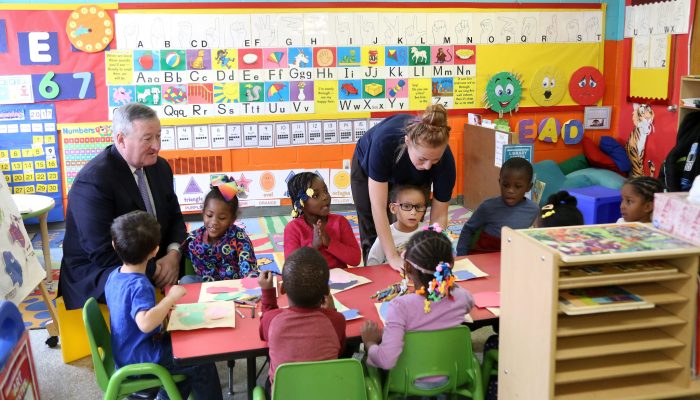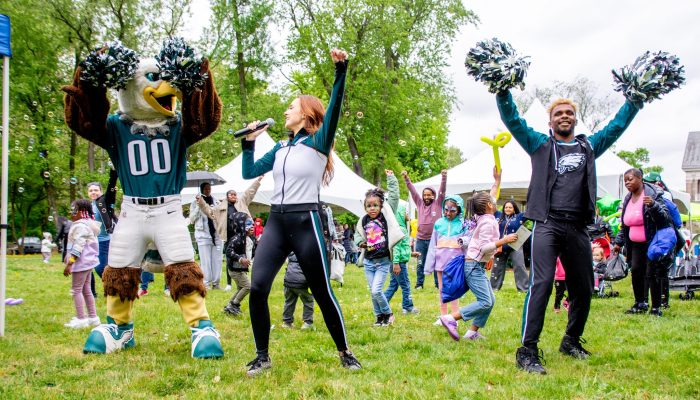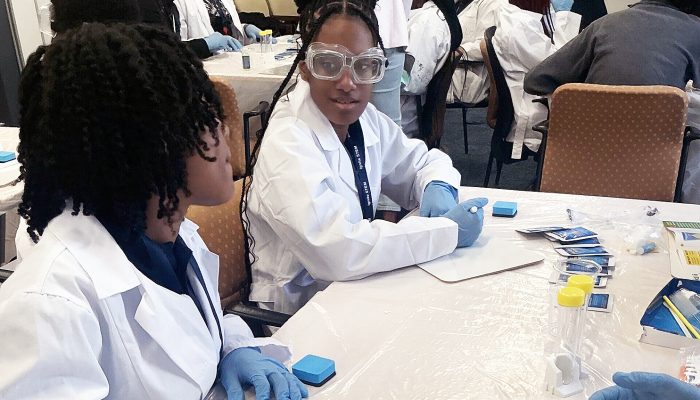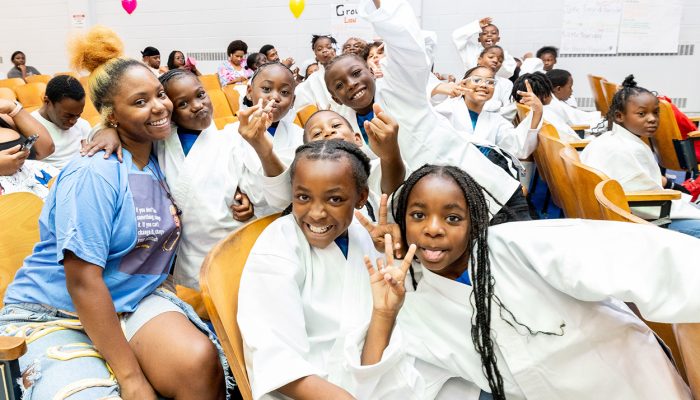Throughout his two terms as mayor, Jim Kenney has consistently acted on his belief in the importance of public education not only as a means to give children a chance to achieve their full potential but also as a central pillar of the fight against generational poverty.
The City’s progress in public education over the last eight years – achieved in partnership with City Council – is a testament to Mayor Kenney’s commitment to improving the lives of young Philadelphians through a holistic approach centered on historic investments in early education, robust resources and activities for students and families, and post-secondary access.
If education is a measure of success for any government, then the numbers tell the story of Philadelphia’s progress over the last eight years:
- The Kenney administration has allocated a total of $1.5 billion in additional local funding for public education since Fiscal Year 2018, including a projected $282 million contribution from the City of Philadelphia in Fiscal Year 2024, which alone represents an increase of 171 percent over the mayor’s first year in office.
- Under Mayor Kenney’s direction, the City has dramatically expanded free, high-quality pre-K through the PHLpreK program, which this year will serve more than 5,000 preschool children in Philadelphia. Funded with $483 million in new revenues since the enactment of the Philadelphia Beverage Tax in 2016, PHLpreK will have provided a high-quality educational foundation for more than 17,000 children citywide by the end of the Kenney administration.
- The Community Schools program, funded with $42 million from the Beverage Tax since 2017, has expanded from nine to 20 participating schools, benefiting over 10,000 students throughout the city. Community Schools are a partnership between the Office of Children and Families and the School District of Philadelphia and serve as hubs of social, behavioral, and educational services for students, families, and neighbors, aiming to remove barriers to education. The program has led to increased student attendance, reduced truancy rates, and greater parent involvement, with tailored services for each community, such as the Walking School Bus and Philly Reading Coaches program.
- The City has significantly increased its investment in the Community College of Philadelphia (CCP) to help young high school graduates and adults expand their career opportunities. Over the next five years, the City is projected to spend $270 million at CCP, including the popular Octavius Catto Scholarship program, which currently provides free tuition and basic-needs assistance for more than 1,500 students while they are working toward economic independence. Established in 2020, the Catto Scholarship makes dreams possible – not just for individual students, but for their families as well. The City will invest $11.6 million into the program in Fiscal Year 2024.
Returning our schools to local control
No less important than the public investment in education has been the mayor’s reimagining of local school governance and the partnership between the School District and the City of Philadelphia. Mayor Kenney’s vision for local control is simple: They are all our children. With this ethos, the administration has set the stage for stronger, seamless collaboration in the interest of students’ safety, health, academic opportunity, and lifelong success.
In tandem with the City’s investments, Mayor Kenney sought and won legislative support in Harrisburg to dissolve the state-run School Reform Commission. In its place, the City assumed local control of public schools with the creation in 2018 of the nine-member Board of Education, which has since worked to increase public engagement and build partnerships to provide additional support for students and their families.
Stronger, seamless collaboration to benefit students
In January 2020, the City announced the creation of the Office of Children and Families (OCF) to strengthen its commitment to children and coordinate the operation of multiple agencies and departments to maximize service delivery to children and families in need. OCF administers an education budget of more than $82.4 million that includes PHLpreK and Community Schools. OCF also oversees the Department of Human Services (DHS), which funds Out-of-School Time (OST) and youth workforce programs. The OCF portfolio has continued to grow to include Philadelphia Parks and Recreation and the Free Library of Philadelphia.
Expansion of OST initiative
Thanks to the growing partnership between the School District and OCF, the City and District are more closely aligned on programs that maximize opportunities for Philadelphia’s students to reach their potential. Key among these is the successful expansion of the OST initiative, led by OCF, which provides expanded out-of-school learning opportunities for students. Funding for OST “seats” is commensurate with the needs of individual neighborhoods, targeting increased funding where the need is greatest.
OST programs provide a variety of opportunities for children and young adults to access enriched learning experiences ranging from summer camps and other recreational activities to programs that build literacy, college preparedness, and workforce opportunities. OST programming reaches approximately 6,000 children each summer and 7,000 children each school year. This year it will operate 136 different OST programs and 132 different sites citywide. The City’s OST budget has risen from $21 million in Fiscal Year 2017 to a projected $42 million in Fiscal Year 2024.
Integrated behavioral health support for students
The Department of Behavioral Health and Intellectual disAbility Services (DBHIDS) and Community Behavioral Health (CBH) have developed a significant partnership with the School District to provide prevention and treatment to students within the schools. The partnership includes in-school programs and external support for students, parents, teachers, and other school community members. These include:
- DBHIDS and the School District include substance use prevention programs with a focus on high-risk neighborhoods that are available as requested by school district principals.
- The Support Team for Educational Partnership (STEP) is fully implemented in 21 public schools and is expanding some of its services into additional schools. STEP teams include a social worker, social behavioral consultant, case manager, and family peer specialist. This strategy identifies drivers of behavioral issues early and connects children and families to appropriate resources to reduce missed instructional time and prevent children from going into crisis.
- Intensive Behavioral Health Services (IBHS) supports children, youth, and young adults with mental, emotional, and behavioral health needs. IBHS offers a wide array of services that meet the needs of these individuals in their homes, schools, and communities.
The game-changing Philadelphia Beverage Tax
The signature achievement of the Kenney administration was the passage, with the overwhelming support of City Council, of the historic Philadelphia Beverage Tax in 2016. Despite intense pressure from a deep-pocketed beverage industry lobbying effort, the Beverage Tax has raised over $483 million for the key educational and community improvement initiatives of the City.
Contrary to the claims of beverage tax opponents, recent research shows that the Beverage Tax has been far more economically equitable than predicted. A 2022 University of Washington study concluded that in the three biggest cities that have enacted sweetened beverage taxes, – Philadelphia, San Francisco, and Seattle, – “there was a positive net transfer of funds from the higher-income population to the lower-income population. Specifically, we found a net transfer towards the lower-income population of $16.4 million in Philadelphia, $6.3 million in Seattle, and $5.3 million in San Francisco.”[3]
Enabling the expansion of quality pre-K
In 2015, more than half of Philadelphia’s three- and four-year-old children lacked access to affordable quality pre-K. Not surprisingly, these children often began school behind their peers and without the social, emotional, and literacy skills to succeed academically.
The passage of the Beverage Tax radically altered this reality through the launch of PHLpreK. By prioritizing funding for eligible programs in neighborhoods with a high prevalence of childhood poverty, the program gives these children a boost by improving their readiness to start school, which in turn improves school attendance and bolsters the academic foundation upon which their school years will be built.
At the same, the program’s benefits have extended far beyond the classroom. Since its inception, PHLpreK has improved families’ economic independence by allowing stay-at-home parents to increase their working hours and/or resume their own education instead of staying home to care for their young children. In addition, PHLpreK has allowed qualified pre-K providers – a majority of which are owned by women and minorities – to grow their businesses and employ more teachers and staff. More than 500 new teachers have been hired to support the program since 2017, and 62 percent of PHLpreK-funded centers are self-reported MWDBE.
Making Community Schools and Rebuild possible
The Beverage Tax also underwrote the development of the Community Schools program, focused on using the 20 participating schools as a center for engaging parents, families, and neighbors as full participants in the education of their children. And not least, the Beverage Tax is supporting up to $288 million in borrowing to fund the Rebuild program, charged with the renovation and modernization of 72 parks, libraries, and recreation centers in neighborhoods all across the city. [2]
Supporting students and families during the pandemic
By early 2020, the City’s historic investments in public education–made in partnership with City Council and having earned the support of both the Board of Education and the Philadelphia Federation of Teachers–were returning significant dividends.
But the combination of the global pandemic and an escalating economic recession led to a seismic shift in cities and classrooms all across America, including Philadelphia.
The pandemic created urgent new educational and humanitarian priorities for children and families, and the City responded in a heroic fashion. Virtually overnight, schools were closed and families remained at home. Under the leadership of OCF, the City immediately mobilized to lead an emergency food response that included multiple ways for children and families to obtain free food. Partnering with the School District, the Archdiocese of Philadelphia, Philabundance, and Share, the City set up 80 youth meal sites in neighborhoods with demonstrated need, including Community Schools and a network of 77 Access Centers created to provide safe places for an estimated 3,000 children to continue their schooling online during the pandemic.
By the end of 2022, the Community School sites had distributed more than one million pounds of free nutritious food to children and families in need. And nearly 3,000 students – almost 60 percent of whom were Black children – had enrolled in the Access Centers by the time the Centers “sunset” just prior to the return of in-person learning in September 2021.
And while there is no question that learning suffered during the pandemic, the City’s efforts through these and other initiatives – including the phenomenally successful PHLConnectED partnership with local businesses that helped close the digital divide with free internet access to more than 23,000 households during the pandemic – demonstrated Philadelphia’s commitment to public education in a time of crisis.
Today, just three years after the pandemic turned the world upside down, city schools are on the road to full recovery, and evidence points to the return of the progress interrupted by the COVID-19 pandemic.
It will take years to fully determine the impact of the City’s historic investments in public education, particularly in light of the devastating impact of the pandemic, but the indicators all trend positive:
- Philadelphia’s Community Schools demonstrated continued growth year over year, with particularly promising trends among the earliest Community Schools. All nine Community Schools created in the 2016-17 school year (known as Cohort 1) experienced an upward attendance trend until the pandemic lockdown during the 2019-20 School Year. A similar trend occurred in two out of the three Community Schools in the second cohort, created in 2017-2018. Improved attendance over time aligns with research on other Community Schools[4] and highlights the positive impact of extended learning time and social support services on attendance rates.
- Four of the nine Cohort 1 schools and two out of the three Cohort 2 schools had attendance growth that outpaced their peer schools. Four schools started out with lower attendance rates than their peer schools but surpassed their comparison schools after becoming Community Schools.
- In mid-September of 2023, preliminary results from the Pennsylvania System of School Assessment (PSSA) showed incremental gains for Philadelphia public school students:
- In math, there was a 3.6 percent increase in students in Grades 3-8 who met or exceeded state standards during the 2022-2023 school year. At the same time, fewer District students scored “below basic” proficiency on the math exam, down 2.8 percent from 2021-2022.
- In science, student scores increased by 3.4 percent; with 40.5 percent either meeting or exceeding state standards. Similarly, the number of students scoring below basic in science decreased by 3.6 percent over the previous year.
In assessing the scores, Schools Superintendent Dr. Tony Watlington noted: “We know that we have a long way to go, but we certainly believe this is promising data, that nearly all areas K-8 saw increases. We’re moving in the right direction.”[5]
Maintaining our momentum
To build on the progress of the last eight years in public education, it is important that the next mayor and City Council:
- Invest in progress: Despite the historic investments in education since 2016, the mayor and City Council will face the end of federal American Relief Act funding, which totaled $1.4 billion over the last two years. Despite this challenge, it is imperative that the City continue to maintain the level of local funding for public education, which is projected at $282.1 million for Fiscal Year 2024, and advocate with partners for a far more equitable state funding model as well.
- Focus on facilities: Philadelphia’s public school buildings have endured decades of underfunding, and the City will be a crucial partner to the School District as they embark on a comprehensive facility plan and work to identify the resources needed to break the cycle of deferred maintenance and costly repairs.
- Champion shared data: Developing an expanded data sharing agreement and expedited sharing of key data will strengthen the City and School District’s ability to provide responsive services and make data-driven policy decisions for students and their families.
- Invest in diverse, quality teachers: Teachers are the most important factor in student learning. The City and partners are poised to make Philadelphia the destination for high-quality, diverse teachers by continuing the work of The Citywide Talent Coalition, which works to recruit and retain our teachers through collective strategies and investments.
- Maintain a coordinated approach: OCF, created by a mayoral executive order, has dramatically improved the delivery of education programs and services by collecting all of the City’s children-serving agencies under one roof, to leverage and collaborate on a holistic approach to serving children and families in need. Maintaining OCF – or at least, the concept of a unified City strategy – is an essential element in maximizing the effective delivery of services to children and families going forward.
[1] Mayor’s Budget Address, March 2, 2023.
[2] Rebuild will be the focus of a separate report in the coming weeks.
[3] Jessica C. Jones-Smith et.al, “Sweetened beverage taxes: Economic benefits and costs according to household income,” University of Washington (2022).
[4] Maier, A., Daniel, J., Oakes, J., & Lam, L. (2017). Community Schools as an Effective School Improvement Strategy: A Review of the Evidence. Learning Policy Institute. ; Olson, L. S., A First Look at Community Schools in Baltimore, Baltimore, Md.: Baltimore Education Research Consortium, December 2014. As of October 18, 2019: http://baltimore-berc.org/wp-content/uploads/2014/12/CommunitySchoolsReportDec2014.pdf ; Johnston, William R., John Engberg, Isaac M. Opper, Lisa Sontag-Padilla, and Lea Xenakis, Illustrating the Promise of Community Schools: An Assessment of the Impact of the New York City Community Schools Initiative, RAND Corporation, RR-3245-NYCCEO, 2020. As of March 2, 2023: https://www.rand.org/pubs/research_reports/RR3245.html
[5] Graham, K., “Philly students’ math scores are up. So is enrollment. Here’s a beginning-of-the-year Philly report card,” The Philadelphia Inquirer, 09/25/23.




